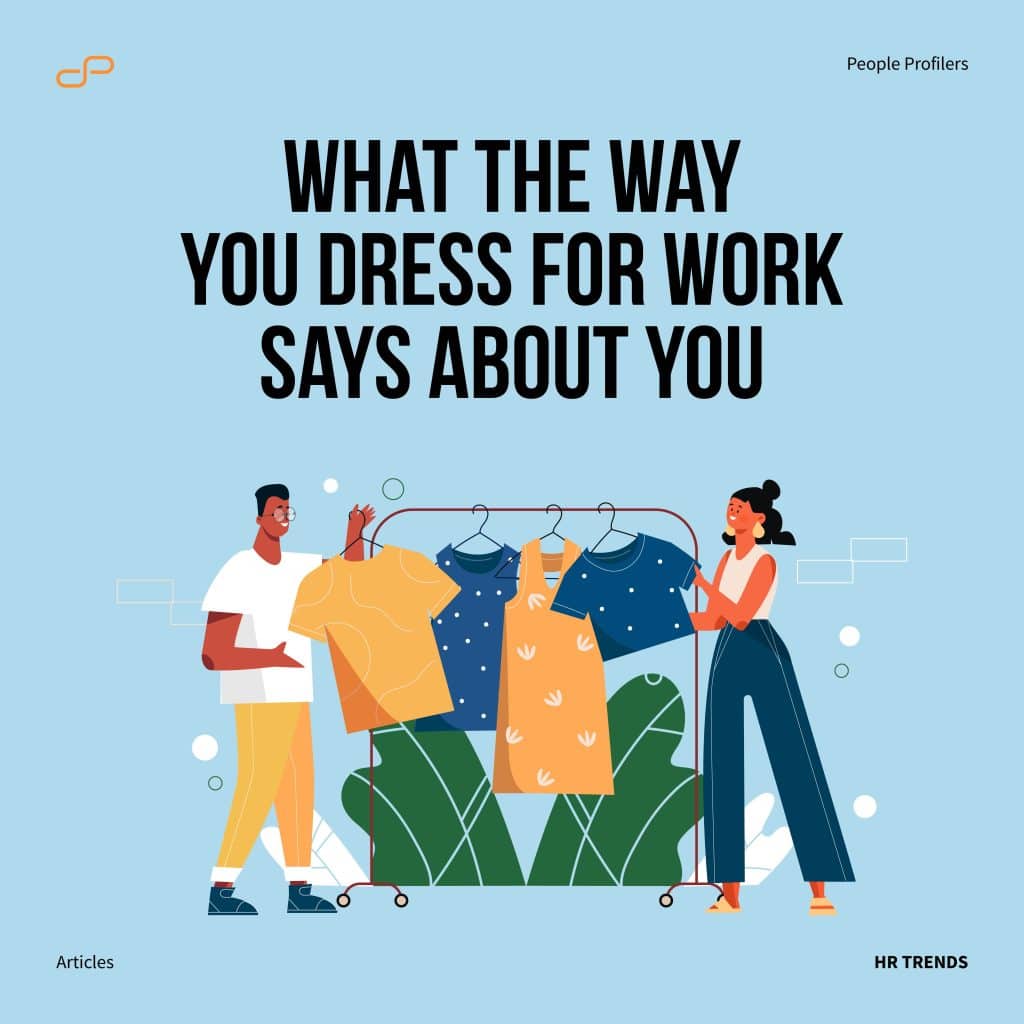
How you dress for work says much more about you than you realise. Even with the proliferation of remote work, what you wear significantly impacts your attitude and psychology toward what you do.
Dr Jennifer Baumgartner, a clinical psychologist, explains in her book ‘You Are What You Wear: What Your Clothes Reveal About You’ that without a caste system, we now use clothing to establish our place in society.
What you wear tells others about your earning power, level of intelligence and the amount of influence you have. What you wear at work also reveals what you think about yourself and how you want others to perceive you.
COLOUR
People respond differently to different colours, affecting how you or others feel.
For example, bright colours are associated with positive energy and cheer, while cool colours project assurance and calm. Dull or ordinary colours might indicate a willingness to blend in with the crowd, while black exudes power and authority.
If you work in an office dominated by people who wear dull colours, choosing red will make you stand out and can be interpreted as confidence.
STYLE
The kind of clothes you wear and the way you wear them matters a lot too.
Studies have shown that provocative clothing does increase the likelihood of sexual harassment and assault at work. Even with workplace attire restrictions becoming more liberal, what you wear still impacts the image you portray.
Wearing revealing clothes in a professional environment makes it hard for bosses, clients and coworkers to take you seriously since you are drawing attention to your body rather than your work.
Formal attire is often cited as the classic business look that makes you look respectable and influential; however, this can sometimes mean you might appear unapproachable and unfriendly. There’s a reason your school teachers avoid wearing suits and formal dresses to class!
On the other hand, casual clothing like t-shirts and jeans might make you come across as easy-going or relaxed, but if your work requires you to meet many people, then wearing all-casual makes you come across as flaky and unreliable.
Many companies that enforce a dress-down day do so not just as an incentive to their employees but also to encourage camaraderie and goodwill amongst their staff, managers, and executives.
After all, seeing your boss come in t-shirts and jeans occasionally reminds you that although he holds your paycheck, he’s just as human as you are.
QUALITY
The quality of your clothes says a lot about how you feel about your work. Wearing low-quality, cheap clothing to work daily tells others that you don’t like your job very much and aren’t willing to invest your money in better, more appropriate attire.
On the other hand, wearing high-end, branded clothes might make others think you need to broadcast your wealth and success to command respect.
Thus, it’s worth reevaluating the brand names and logos you choose to wear to work and selecting discrete pieces for your work outfits. Make sure to choose quality pieces of clothing that last to boost your productivity at work—especially if you don’t like what you’re doing!
UNIFORMS
You might think, ‘I work in a job that requires me to wear a uniform, so this doesn’t apply to me.’ However, how you wear your uniform speaks volumes about how you approach your work. A crumpled, stained uniform speaks of a lackadaisical attitude towards work, while baggy and ill-fitting attire signals that you’re insecure about your body or current lifestyle.
Take the time to alter or tailor your clothes or uniform to look smart the next time you go to work.
Clothes make the man. Naked people have little to no influence in society. This famous saying was an old Latin proverb which Shakespeare later used and then Mark Twain, and it’s still very relevant today.
What you wear makes a difference, so choose your work attire conscientiously!


